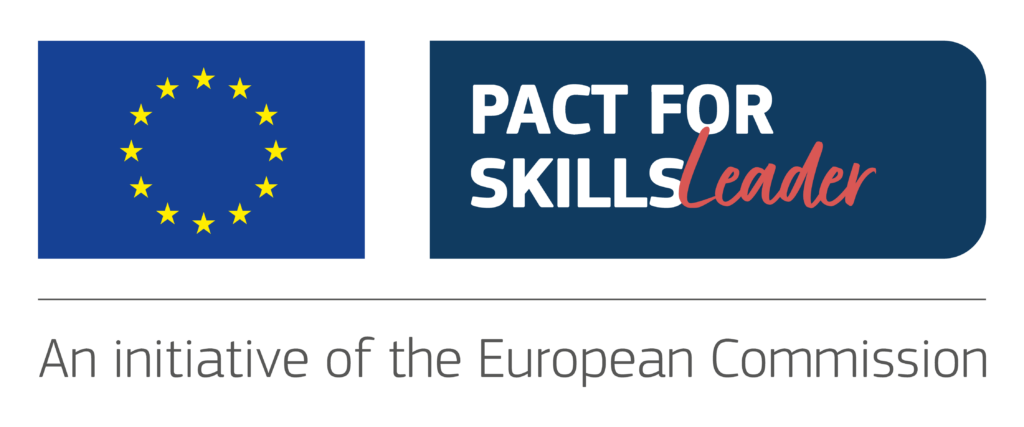AI in Your Class: Tools for Tomorrow’s Classroom
AI in Your Class: Tools for Tomorrow’s Classroom

AI in Your Class: Tools for Tomorrow’s Classroom
technology
In today’s digital age, the effective use of technology is essential for modern, future-ready teaching. This 7-day course equips teachers with practical digital skills, enabling them to incorporate free Web 2.0 tools, Artificial Intelligence (AI) technologies, and STEAM (Science, Technology, Engineering, Arts, and Mathematics) approaches into their everyday lessons. Participants will explore how to create engaging online content, foster student collaboration, and integrate European cultural heritage into interdisciplinary, tech-enhanced educational practices.
Course Highlights:
– Level 7 EQC Certification: Attendees will receive a prestigious Level 7 EQC Certificate, Europass Certificate Supplement, and 10 transferable ECVET points, enhancing their professional qualifications.
– Hands-on ICT Training: Learn to use blogs, wikis, AI chatbots, image generators, coding platforms, and other Web 2.0 and AI tools to foster student engagement and collaborative learning.
– STEAM Integration: Discover how to design interdisciplinary lessons that connect ICT and AI with science, technology, engineering, arts, and mathematics—encouraging critical thinking, creativity, and innovation.
– Cultural & Heritage Education: Combine digital skills with cultural content by creating lessons inspired by local historical sites such as Ancient Messini or the historical center of Kalamata, blending tradition with technology.
– Real-World Application: Develop your own online or interactive STEAM-based lessons, enriched by AI tools, and apply them to real-time study visits and authentic learning experiences.
– Collaborative Learning: Work with peers from across Europe to share experiences, exchange best practices, and develop collaborative teaching projects.
Why ICT, AI, and STEAM Matter in Education:
As education rapidly evolves, educators must stay ahead of the curve by integrating not only ICT but also emerging AI technologies and STEAM approaches that encourage hands-on learning and problem-solving. This course empowers teachers to confidently use a range of digital tools, transforming their teaching to meet the demands of 21st-century classrooms and digital learners.
Course Objectives:
By the end of this course, participants will:
– Master Web 2.0 tools such as blogs, wikis, and online presentations.
– Explore accessible and teacher-friendly AI tools (e.g., ChatGPT, AI image generators, educational assistants) to enrich classroom instruction and planning.
– Understand the principles of STEAM education and how to design interdisciplinary, project-based lessons.
– Learn to use ICT and AI to support inclusive education and differentiated instruction.
– Gain confidence in designing interactive lessons inspired by local culture, enhanced through digital storytelling, coding, or AR/VR elements.
– Improve English language competence, particularly in using ICT and educational technology.
– Develop a stronger sense of European citizenship and identity through shared experiences with educators from across Europe.
– Understand and apply the Europass tool for professional development.
Course Content:
This course provides a comprehensive introduction to ICT tools that are both practical and easy to use in a classroom setting:
– Web 2.0 Tools: Blogging with WordPress or Blogger, collaborative wikis, and interactive presentations with Prezi or Canva.
– AI in the Classroom: Use ChatGPT for content generation, lesson planning, and differentiation; explore AI art tools like DALL·E or Craiyon; and test AI-powered platforms for formative assessment or student feedback.
– STEAM-Based Learning: Explore tools like Scratch, Tinkercad, GeoGebra, and Makey Makey to design interdisciplinary activities that connect science, coding, art, and engineering.
– Cultural Integration & Field Work: Use mobile apps, AR/VR, and geolocation tools to create interactive lessons linked to European culture and history, inspired by site visits to places like Ancient Messini.
– Practical Projects: Collaboratively design and present a sample lesson or mini-project incorporating ICT, AI, and STEAM strategies.
Methodology:
This course is designed around practical, hands-on learning, with a focus on collaboration and peer-to-peer exchange. Participants will engage in interactive lessons in a fully equipped computer lab, while also exploring how technology can be applied beyond the classroom. By the end of the course, participants will have the confidence and skills to use Web 2.0 tools effectively in their own teaching environments.
Unique Learning Opportunities:
– Study Visits: Participants will have the option to visit local schools, including those specializing in special needs education, vocational training, and disadvantaged communities. These study visits provide valuable insights into how ICT is used in different educational settings. There is no extra cost for these study visits.
– Gamified City Tour: Engage in a gamified tour of Kalamata, where participants will discover how to integrate ICT into outdoor learning experiences.
– Historical Site Visit: Explore local historical sites like Ancient Messini, combining non-formal European history learning with ICT applications. There is no extra cost for these outdoor learning activities.
Social Programme:
An optional social programme offers participants the chance to experience Greek culture and network with peers. Activities may include intercultural nights, group dinners at local restaurants, and excursions to nearby attractions. Participants are responsible for the cost of meals, drinks, and any additional excursions, including transportation or entry fees for museums.
Who is This Course For?
This course is ideal for teachers of all subjects who want to enhance their ICT skills and integrate technology into their lessons. It is particularly suited for educators looking to improve student engagement, encourage collaborative learning, and incorporate European culture into their teaching.
Tailored to Your Needs:
– The course is highly customizable, starting with a pre-course questionnaire to ensure that training is adapted to each participant’s needs and experience.
– After the course, you’ll receive comprehensive materials, lesson plans, and resources to implement in your own classroom.
Duration and flexibility:
The course is typically 7 days at a cost of €560, but adjustments can be made for shorter or longer courses depending on grant requirements.
Venue and flexibility:
We offer our standard courses at Kalamata, a nice sea-side city in the south of Greece famous for its eponymous olives and olive oil.
It’s a quiet top golf destination and the Telegraph has included it in Europe’s 13 must-visit cities. Here’s a taster video: https://www.youtube.com/watch?v=i9lpkTfvR8Y&ab_channel=%CE%94%CE%AE%CE%BC%CE%BF%CF%82%CE%9A%CE%B1%CE%BB%CE%B1%CE%BC%CE%AC%CF%84%CE%B1%CF%82
Would you like to know what else you can in Kalamata? Check this site: https://experienceskalamata.com/
But, would you like to have the course at another part of Greece or country? Drop us a line to see what we can do for you!
Course confirmation
We have never canceled a course. We offer our standard courses only at our headquarters in Kalamata and only a few times per year. As a result, on top of being able to offer quality services all around, we do not have to meet any certain number of participants to cope with expenses.
Join a European Community:
As part of a European-wide initiative, this course offers you a valuable opportunity to collaborate with peers from across Europe, contributing to your professional growth while deepening your European identity.
Available Dates
- 2025
- 16.02.2025 – 22.02.2025
- 04.05.2025 – 10.05.2025
- 06.07.2025 – 12.07.2025
- 02.11.2025 – 08.11.2025
- 2026
- 26.04.2026 – 02.05.2026
Accommodation
During your stay here you can stay wherever you want. However, we do propose accommodation, which we can book for you and from which we offer free transfers to all course sites and activities.
Pre-payments
We do not ask for money upfront. You can pay whenever you want including when you arrive here.




